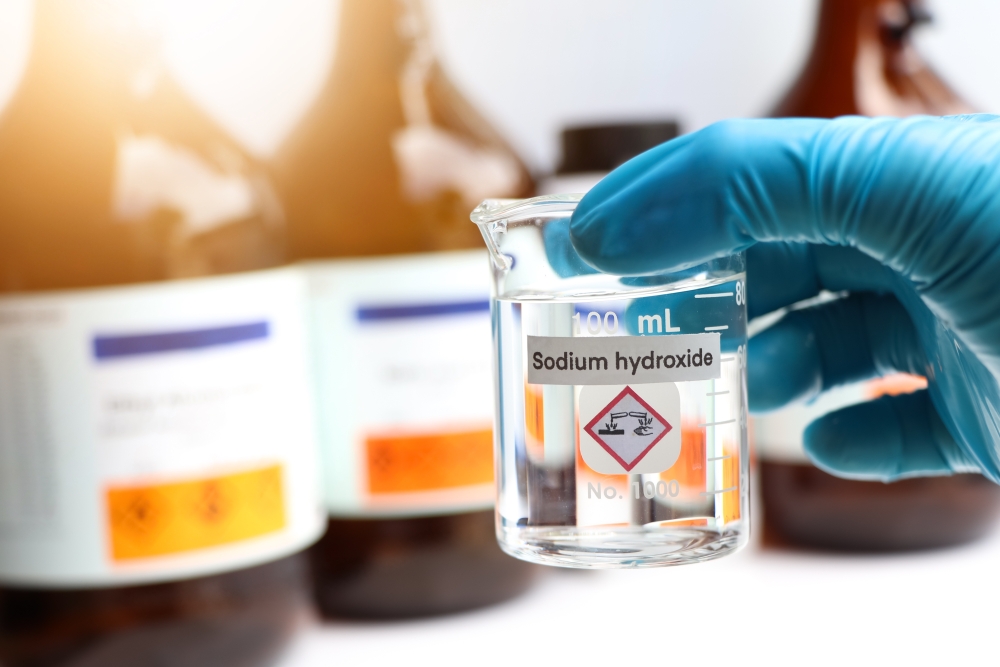Blog
How Dense is Sodium Hydroxide? Discover Its Properties and Uses
How dense is sodium hydroxide? Sodium hydroxide (NaOH), also known as lye or caustic soda, is a widely used chemical compound in industrial and laboratory settings. Understanding its density is crucial in determining how it behaves in various solutions and its interactions with other substances. The density of sodium hydroxide is a significant property that influences its practical applications. This article will delve into the concept of sodium hydroxide density, factors affecting it, and how it is measured in different conditions.
What is Sodium Hydroxide?
Sodium hydroxide (NaOH) is a strong base composed of sodium (Na), oxygen (O), and hydrogen (H). People commonly find it in solid form as white, crystalline pellets or flakes, which dissolve easily in water. In its liquid form, sodium hydroxide serves various industrial processes, such as soap making, water treatment, and chemical manufacturing.
How is Sodium Hydroxide Formed? Understanding the Process
The compound’s density varies depending on its form, temperature, and concentration, making it an important characteristic to understand in practical applications.
How Dense is Sodium Hydroxide in Solid Form?
The density of solid sodium hydroxide can vary slightly depending on the purity and form (flakes, pellets, or beads). Generally, sodium hydroxide has a density of around 2.13 grams per cubic centimeter (g/cm³) in its solid state. Sodium hydroxide has a relatively high density compared to other common solid bases and chemicals, which allows it to dissolve effectively in water and form highly concentrated solutions.
How Dense is Sodium Hydroxide in Solution?
When sodium hydroxide dissolves in water, the resulting solution’s density depends on the concentration of NaOH. A more concentrated solution will naturally have a higher density due to the presence of more sodium hydroxide particles per unit volume. For example, a 50% sodium hydroxide solution typically has a density of approximately 1.53 g/cm³ at room temperature.
Various factors, such as temperature, pressure, and the concentration of NaOH in the water, can influence the density of sodium hydroxide solutions. As the temperature increases, the density of sodium hydroxide solutions decreases slightly, as warmer solutions generally become less dense.
Factors Affecting the Density of Sodium Hydroxide
Several factors can influence how dense sodium hydroxide is, both in solid and solution forms. These include:
- Concentration: Higher concentrations of sodium hydroxide in solution result in higher densities, as more NaOH molecules are present.
- Temperature: As the temperature increases, the molecules of sodium hydroxide in solution move faster and spread out, reducing the solution’s density.
- Purity of Sodium Hydroxide: The density of sodium hydroxide may vary slightly based on its purity. Impurities in sodium hydroxide can lead to slight deviations from the typical density values.
How to Measure the Density of Sodium Hydroxide
Standard laboratory techniques, such as a pycnometer or a density meter, measure the density of sodium hydroxide. For sodium hydroxide solutions, the density helps calculate the concentration of the solution, which is often required in industrial processes.
To measure the density of a sodium hydroxide solution, place a small sample of the liquid in a container and measure its mass. Determine the volume of the solution using the dimensions of the container, and calculate the density by dividing the mass by the volume.
Applications of Sodium Hydroxide and the Importance of Its Density
The density of sodium hydroxide plays a crucial role in its many applications:
- Soap Making: Sodium hydroxide’s density affects its ability to mix with oils and fats in the process of saponification, where fats are converted into soap.
- Water Treatment: Sodium hydroxide solutions are used to neutralize acids in wastewater treatment. The density of these solutions determines how effectively they can be handled and mixed in large quantities.
- Chemical Manufacturing: Sodium hydroxide is essential in the production of various chemicals like detergents, paper, and textiles. Understanding the density of NaOH helps in controlling its reactions during manufacturing processes.
Why Does Density Matter for Sodium Hydroxide?
The density of sodium hydroxide is significant in various chemical and industrial processes. For instance, knowing the density of sodium hydroxide in solution helps in:
- Controlling Reaction Rates: A solution with higher density will contain more active sodium hydroxide, which may react more quickly with other substances.
- Ensuring Safety: Since sodium hydroxide is highly caustic, knowing its density helps ensure that you follow the correct handling procedures, especially when preparing solutions.
- Optimizing Industrial Processes:In large-scale manufacturing, accurately determining the density of sodium hydroxide ensures that workers use the correct amounts of chemicals to achieve the desired results.
How to Handle Sodium Hydroxide Based on Its Density
Due to the high density of sodium hydroxide in both solid and liquid forms, it is important to handle the compound with care:
- Wear Protective Equipment: Always wear gloves, goggles, and protective clothing when working with sodium hydroxide, as it can cause severe burns.
- Proper Storage: Store solid sodium hydroxide in airtight containers to prevent it from absorbing moisture and becoming hazardous. Keep solutions in tightly sealed containers to avoid reactions with carbon dioxide in the air.
- Dilution: When working with sodium hydroxide solutions, always dilute with caution. Gradually add NaOH to water to avoid exothermic reactions that could cause splashing.
Conclusion: How Dense is Sodium Hydroxide?
In conclusion, how dense is sodium hydroxide? Sodium hydroxide has a density of approximately 2.13 g/cm³ in its solid form and varies when dissolved in water depending on the concentration. Understanding the density of sodium hydroxide is essential in its various applications, from industrial processes to laboratory work. By considering the density and the factors that affect it, professionals can use sodium hydroxide safely and effectively.
Follow us on Facebook!

